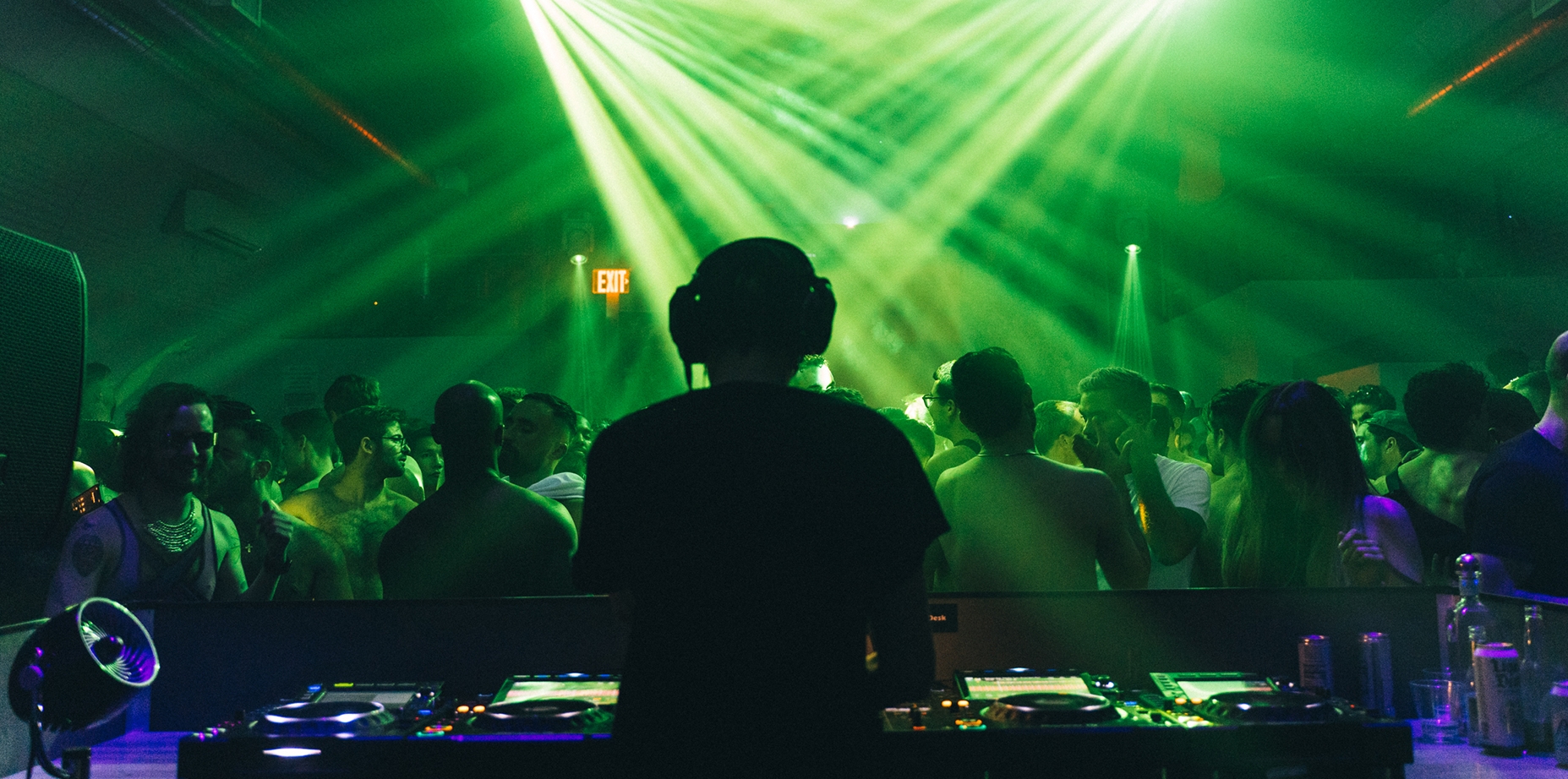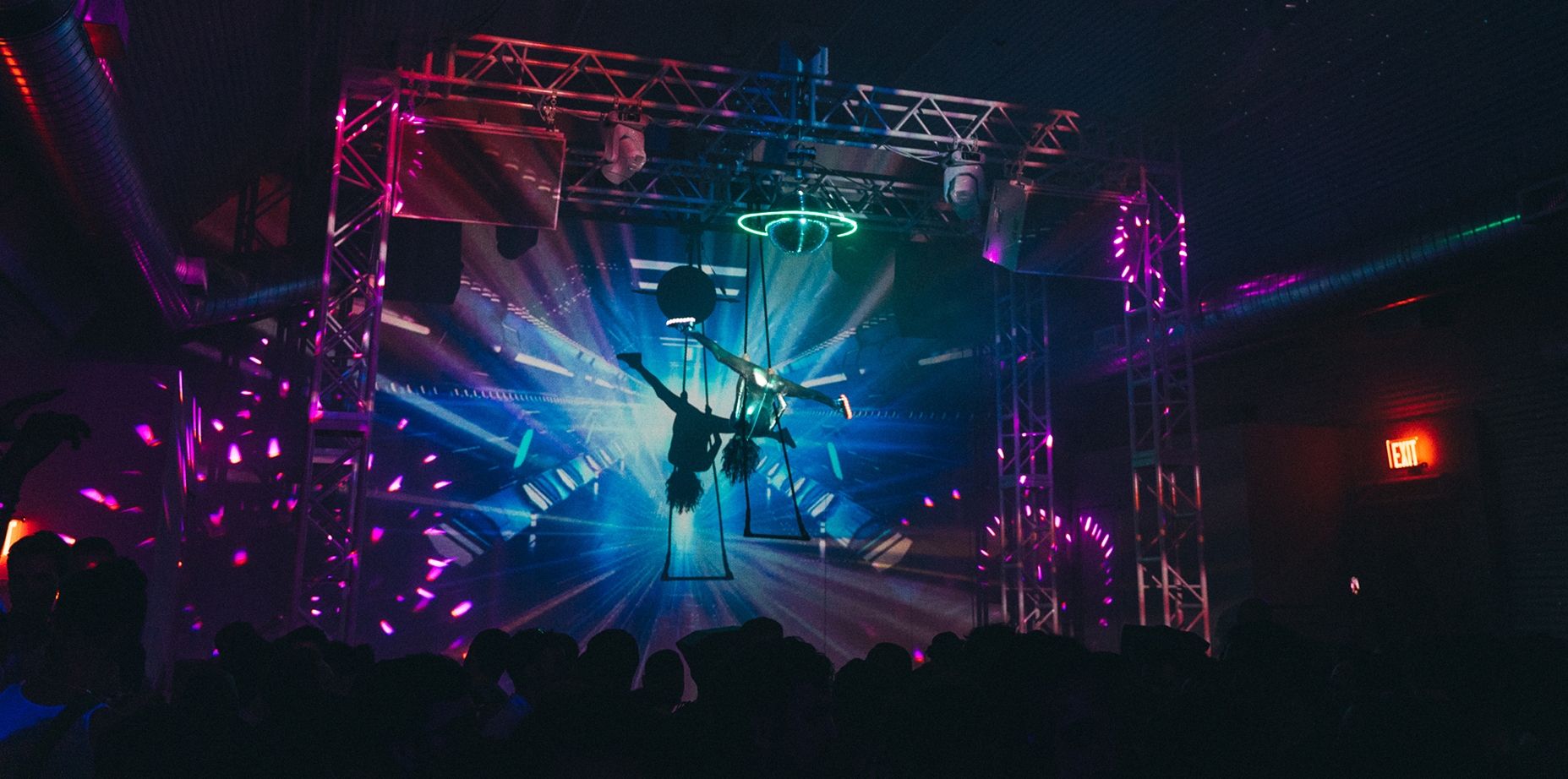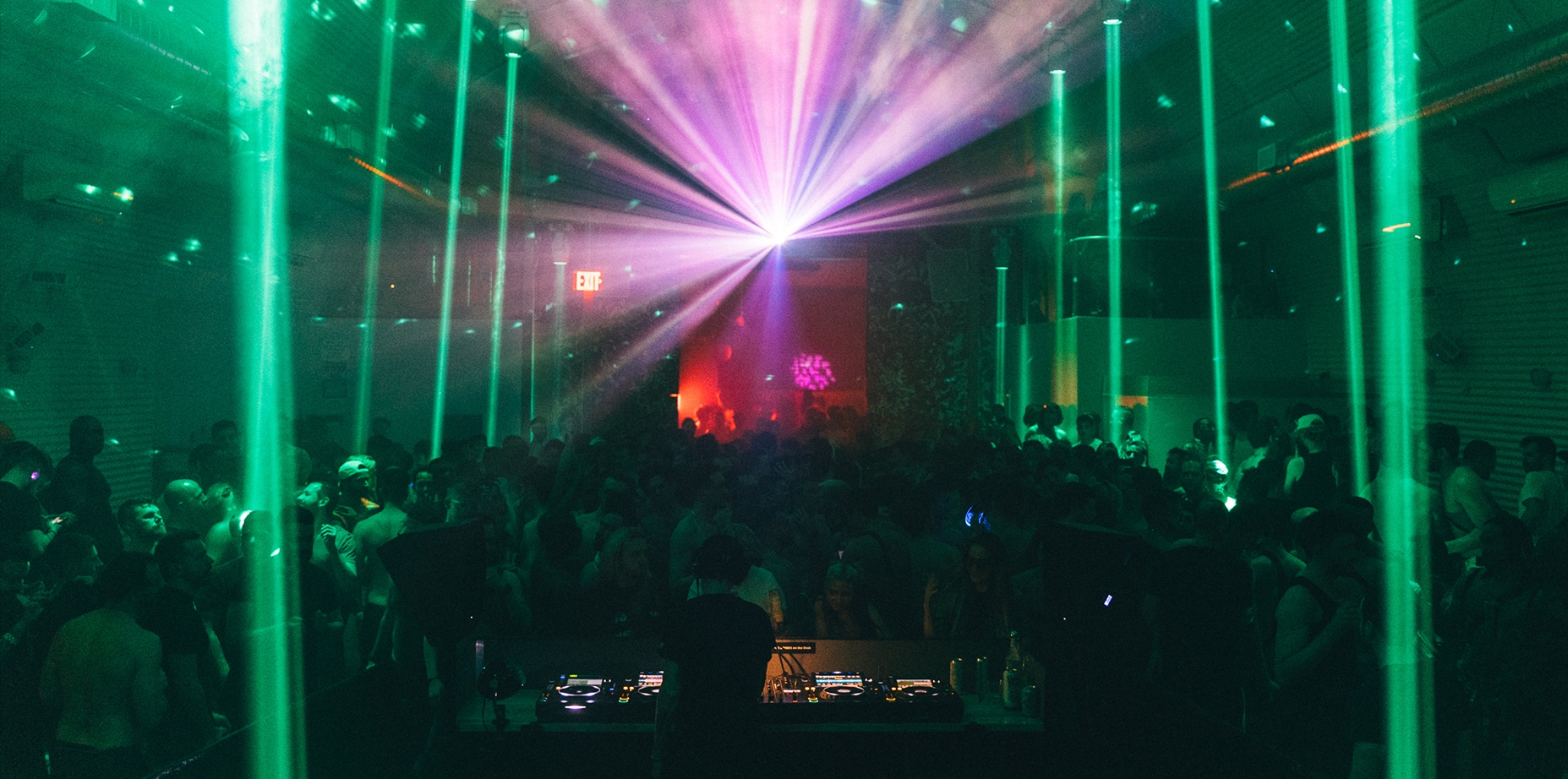A new dance club in Williamsburg is bringing Tel Aviv party culture to Brooklyn
The new Jewish-owned club, inspired by the late-night Tel Aviv scene, has already become a fixture of Brooklyn nightlife

A DJ performs at the opening weekend of Silo, two years ago. Courtesy of Annie Forrest
(New York Jewish Week) — On a recent Saturday at Silo, a new dance club in Williamsburg, Brooklyn, an aerialist was dangling above the crowd, doing flips on a hula hoop in front of hundreds of people, while hypnotic house music boomed through the venue’s world-class sound system. It was 1 a.m. and the party was just getting started.
Alex Neuhausen, a 39-year-old Jewish musician-turned-club owner, told the New York Jewish Week that this experience of starting the night well past most people’s bedtimes is inspired by Tel Aviv, the beachside Israeli city famous for its club culture.
“In Tel Aviv, they all get dinner with their family and everyone hangs out at 10 or 11, and then you hang out before the club until 2 or 3, and then you go to the club,” Neuhausen said. “They keep super-late hours. You turn the entire night into an experience. We want to do that.”
Some of the biggest night club venues in Brooklyn can hold thousands of people. Silo, by contrast, holds only 500, which carries a more intimate feel. The club is located on the eastern fringes of Williamsburg inside an repurposed airplane hangar, and its high ceiling provides an open, airy atmosphere to what would otherwise feel like a tightly packed room.

The team behind Silo is “mostly Jewish,” Neuhausen said, including co-founder Lily Wolfson, the booking consultant, the sound team and the lighting engineers. Neuhausen’s girlfriend, Ariel Lasevoli, who is the club’s director of performance and production, is half-Jewish. A massive two-sided mural, which separates the main club room from the bar area, was created by the Israeli artist Yoshi.
The striking mural is a piece that seems to change after a guest consumes a few drinks while the music plays. The mural portrays a seemingly endless array of black smoke or fire — gray clouds with some white streaks of electricity in the middle of it — but Neuhausen said it is open to interpretation.
“The front represents chaos,” Neuhausen said about the mural, which stretches 15 feet tall and 24 feet wide. “The show room side is a mix of organic patterns, fractals and flowers, but it never quite resolves into anything if you look closely. It’s like a Rorschach [test]; the viewer gives it meaning.”
The Tel Aviv club scene is only one of Silo’s Jewish inspirations: Neuhausen said his interest in dance music goes back to a young age, when he went to his cousins’ bar and bat mitzvahs in the Washington, D.C. area, where he grew up.
“What’s really striking about going to a bar mitzvah is that everyone dances,” Neuhausen said. “It’s the entire family, from the old folks to everyone. It’s just this joyous occasion. American white bread culture doesn’t have a lot of these elements.”
If a bar mitzvah party is a familial, albeit sometimes corny celebration that involves dancing with your loved ones, then it shares a great deal with the ethos of Silo — namely, to provide a place to party all night long while maintaining a welcoming feeling. It’s the antithesis of the exclusive environment that characterizes many high-end Manhattan and Brooklyn nightclubs, which often come with judgmental door policies and an intense, cooler-than-thou attitude.
At Silo on a Saturday earlier this month, the vibe was almost the complete opposite. The security guard cracked jokes with those waiting in line while checking IDs, and Neuhausen himself took our coats as we walked through the door. The attendees were not just Instagram models; college students, queer folks dressed in drag and 50-somethings were also in the mix. It wasn’t a sold out show, but there were nearly 400 people in the room, and almost everyone was focused on the music.
House music — which combines four-on-the-floor drum beats with R&B vocals and other layers — is Silo’s main focus, a style of music that originated at Black LGBTQ clubs in Chicago and Detroit in the 1980s. It’s a history that, Neuhausen said, shares commonalities with the Jewish people.
“These marginalized communities, maybe almost in spite of the oppression, generate great art,” Neuhausen said. “Jews have a lot in common with that shared cultural experience of oppression.”

Neuhausen’s father is Jewish, but not “devout about practicing,” he said. “We only went to synagogue a couple of times but I picked up a lot of cultural Jewish identity from him,” he added. “Whenever I see my extended family, it’s much more Jewish.”
In 2012, Neuhausen formed a band with Wolfson and they moved from San Francisco to New York, where Neuhausen took up residence in a garage in Williamsburg. Eventually, he turned the space into a makeshift venue for performances that included bands, comedians, aerialists and eventually DJs.
By 2017, Neuahusen and Wolfson’s parties were growing, so they opened up a commercial space called “Secret Loft” in Manhattan, which held only 80 people. It’s where, over the next five years, Neuhausen learned how to perfect the art of throwing parties — and where he assembled the team that would later go on to build Silo.
“It did really well immediately,” Neuhausen said. “We thought this was a thing we could actually do for a living. That was really the dream.”
Those parties ultimately became too big for the space. Wanting to be closer to the booming club scene in Brooklyn, the team eventually opened Silo, which is located next to the established megaclub Avant Gardner.
At Silo, the goal is to create a space that’s welcoming for all. “Last weekend, we had the DJs on the floor, on a little bit of an elevated platform,” Neuhausen said. “They were surrounded by people on all sides — everybody is facing inwards. It’s very different from a concert, it feels more like a community event.” During the week, the venue also hosts DJ workshops.
Neuhausen added that the booking team is “two women and a gay guy,” and the goal is to bring women DJs and people of color into the club. Neuhausen noted that, despite its origins, “there tends to be a lot of white guys” within some sub-genres of house music.
“We are booking more eclectic artists than a lot of venues,” he said. “We’re not about making people feel uncool. We’re not elitist. We book elite level talent, but we want everyone to see it.”
This article originally appeared on JTA.org.















